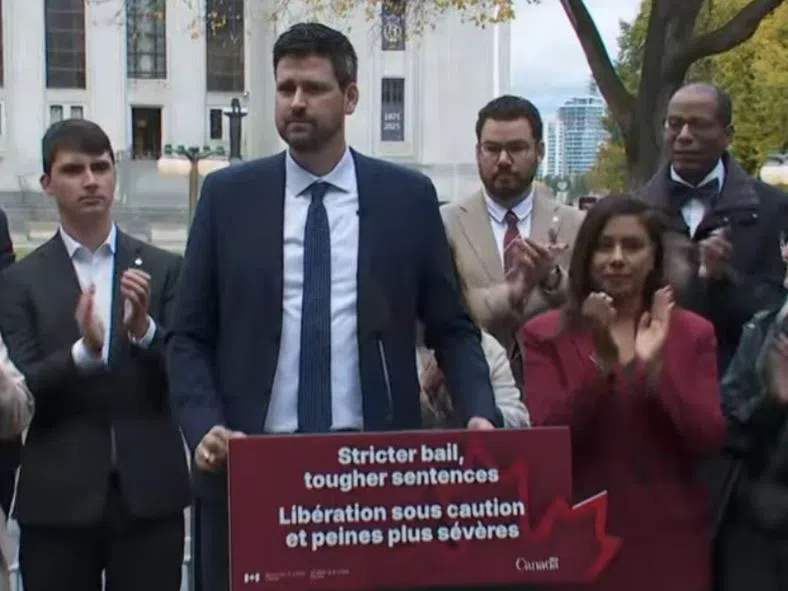
Justice Minister Sean Fraser announcing reform of bail and sentencing at a press conference in Ottawa. Photo: CPAC.
Canada’s federal government is moving to tighten bail and sentencing laws, with Justice Minister Sean Fraser unveiling what he called the most sweeping criminal law reforms in years.
The new Bail and Sentencing Reform Act introduces more than 80 changes to the Criminal Code, focused on keeping repeat and violent offenders behind bars longer while giving police and courts stronger tools to protect the public.
“Today is about stronger laws and safer communities,” Fraser said. “We’re making bail harder to get for violent and repeat offenders, while also strengthening sentencing and supporting prevention.”
One of the biggest changes is an expanded use of reverse onus at bail.
That means for serious offences — such as home invasion, violent auto theft, human smuggling, extortion, or repeat assaults — detention will be the starting point.
The accused would have to prove they should be released. Fraser said the goal isn’t to jail more people, but to better protect communities: “It’s to detain dangerous people who pose a risk to public safety.”
Judges would have to consider whether crimes involved random or unprovoked violence, if the accused has other charges pending, and whether strict conditions — such as weapons bans — are needed.
The bill also proposes tougher sentencing rules.
Offenders could face consecutive prison terms for violent auto theft combined with break and enter, or for repeat violent crimes, meaning they would serve one sentence after another instead of at the same time. “If you’re sentenced to two years for one crime and four for another, we believe you should serve six,” Fraser said.
Other measures would make sentences harsher for crimes against first responders, retail theft, or damage to essential infrastructure. The bill would also remove house arrest for certain sexual and child-related offences and restore driving bans for serious negligent driving cases.
Fraser said the reforms were developed with input from police, provinces, and community groups. “Although we as the federal government may hold the pen when it comes to changing Canada’s criminal laws, it’s the provinces who have the responsibility to administer the system,” he said, adding that cooperation has been “extraordinary.”
He also stressed that stronger laws must be matched by prevention — including more RCMP and border officers, mental health and housing investments, and youth programs to address the roots of crime.
When asked about concerns over court delays, Fraser said a separate bill is coming this fall to speed up trials, protect victims, and address intimate partner and sexual violence.
“People are afraid, and I understand why,” he said. “They see repeat offenders going in and out of the system and random violence in their neighbourhoods. We can’t accept this — not in Canada.”
The proposed legislation now heads to Parliament, where Fraser says the government will continue working with provinces, police, and justice officials to ensure the new measures lead to safer streets and stronger public confidence in the justice system.









